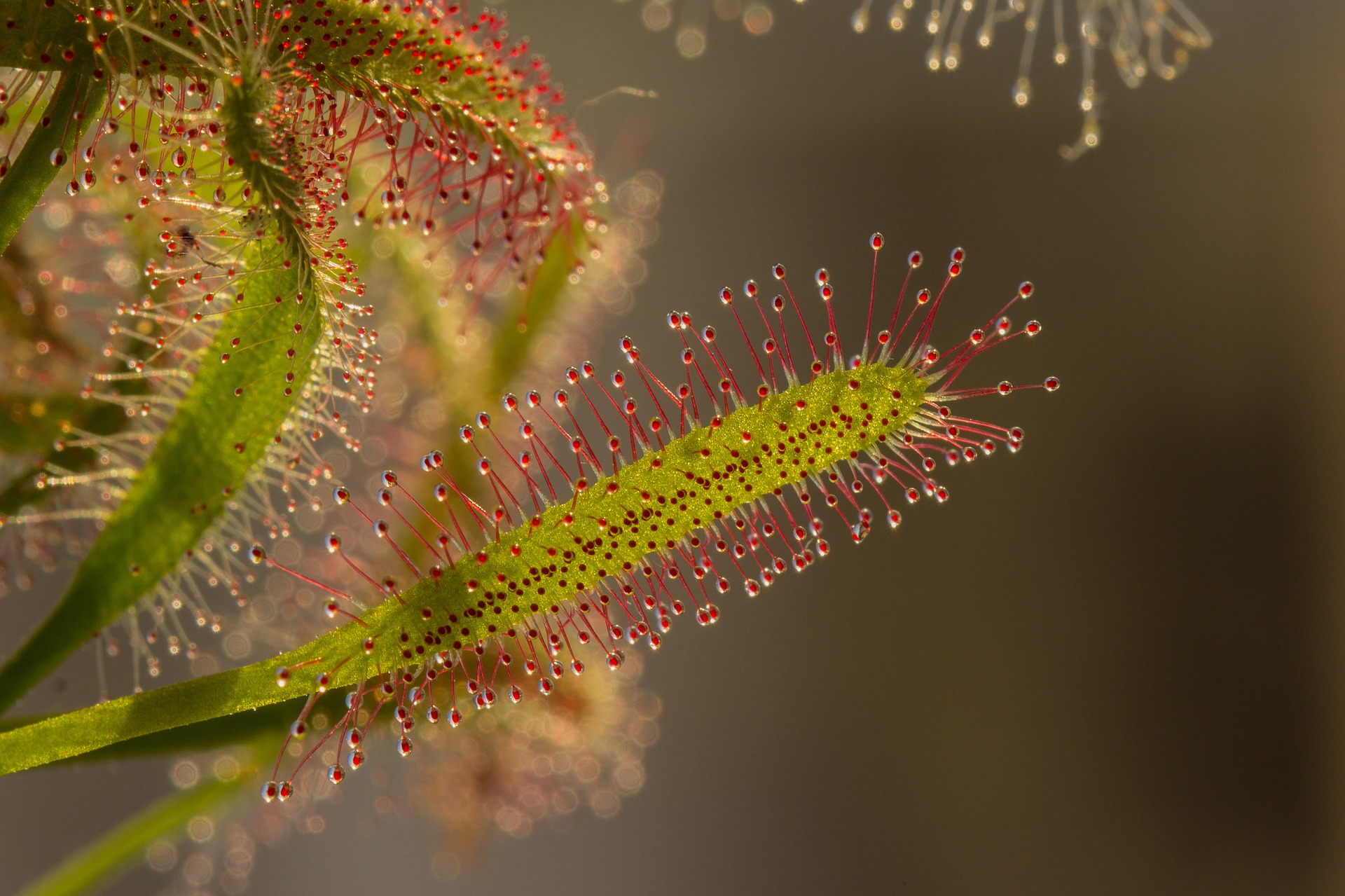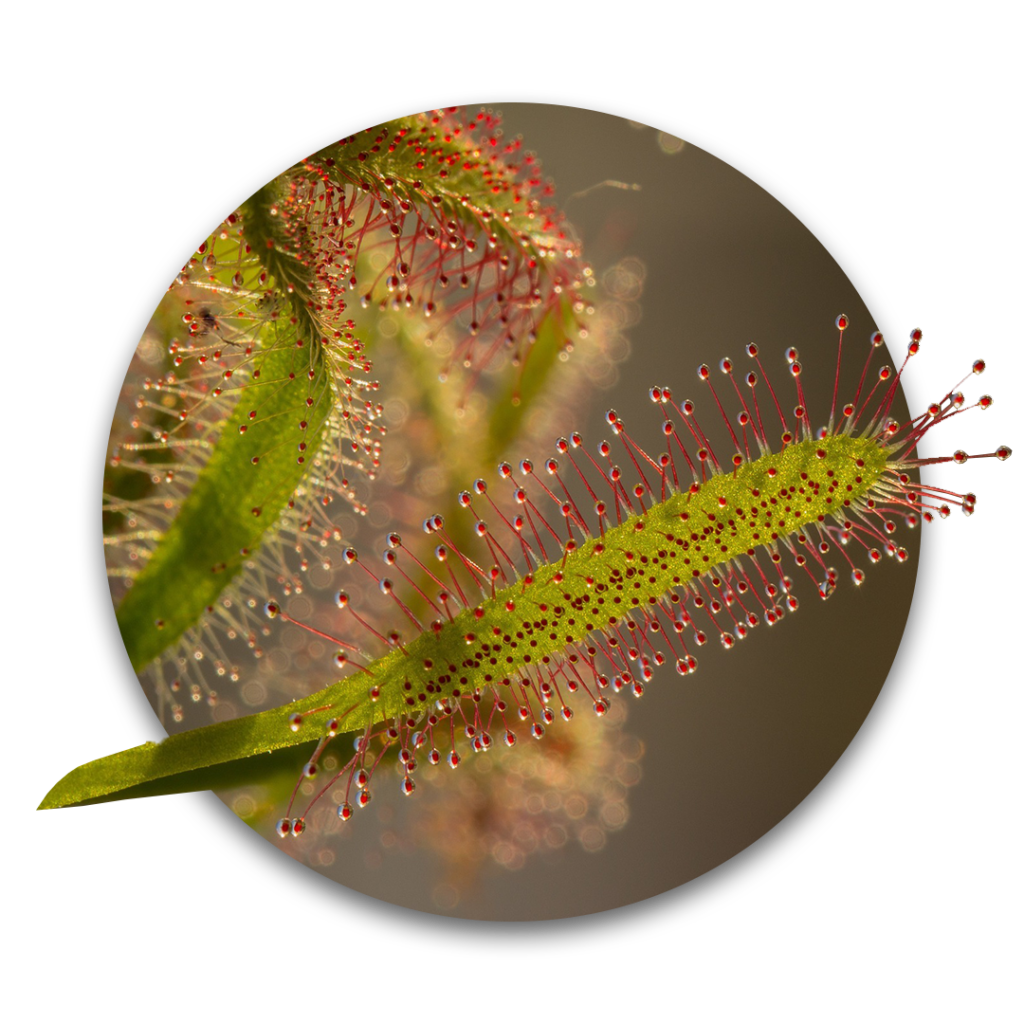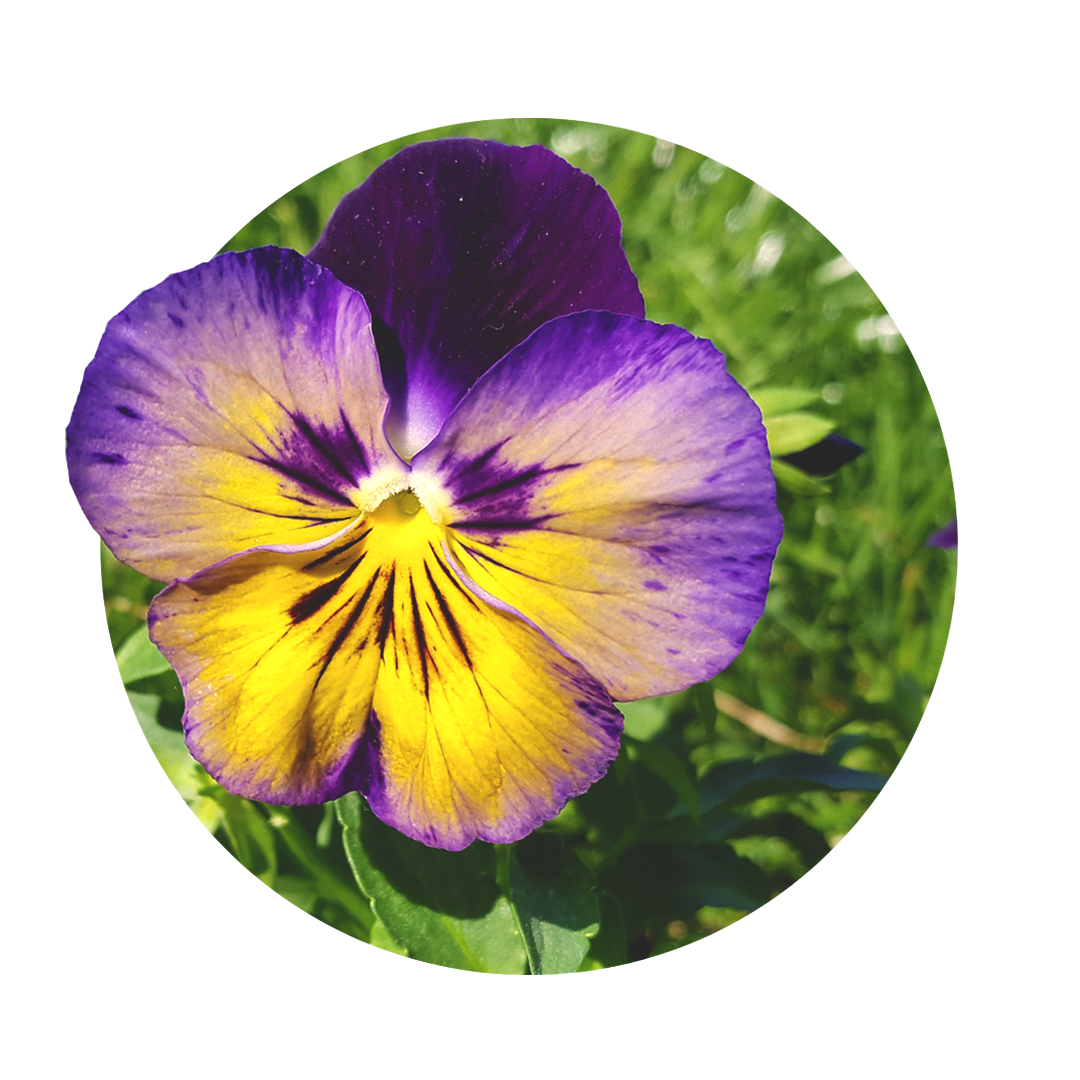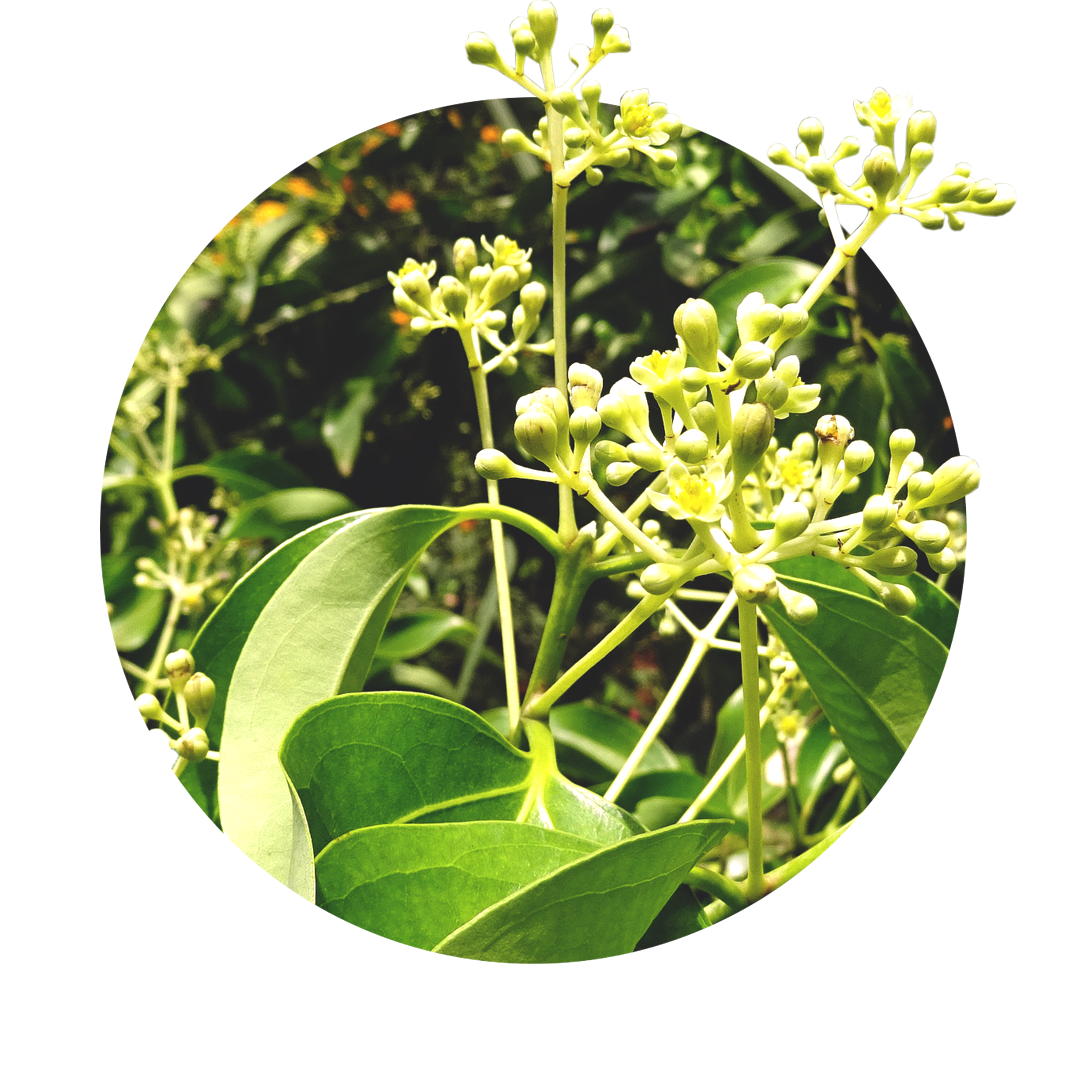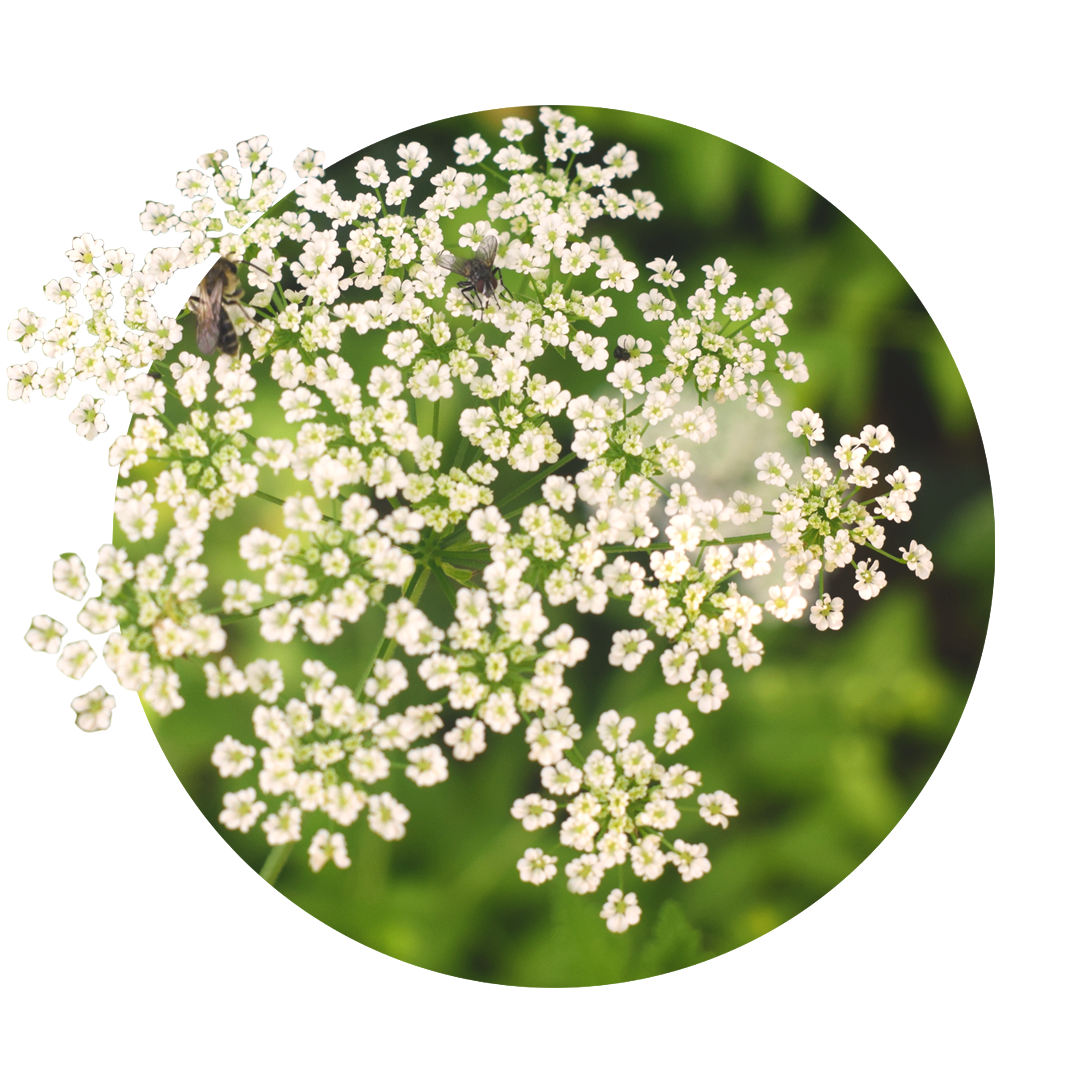Sundew: the carnivorous medicinal plant
Sundew is a medicinal plant that has not been used by medicine for very long. The sundew is mentioned sporadically in the late Middle Ages, but it never became famous. It was not until Darwin's research in the second half of the 19th century that people became aware of sundew. Until that time carnivorous plants were considered absurd, but now the awareness began to change. The property of being able to digest proteins as a plant became the subject of science and brought some findings that explain the modern use of sundew.
Facts about sundew
Did you know that...
...the sundew was used in Scotland to obtain the purple-like dye?
...Charles Darwin, the inventor of Darwinism, recorded and described the carnivorous properties of the sundew in the 19th century?
...the sundew is so hardy that it even grows in Alaska and Greenland?
What is sundew?
Sundew belongs to the carnivorous plants and forms its own plant family called sundews. With over 200 species, it forms the second largest genus among carnivorous plants. Sundew forms long stems with round, green, thick leaves at the end. These are covered with reddish tentacles. Some are glue tentacles and stick, some are quick tentacles that can snap shut and hold on. Insects caught in this way can then be dissolved and digested by means of a protein-decomposing secretion.
This carnivorous property is remarkable because it allows the plant to grow almost anywhere in the world. In our country, it is mostly found in raised bogs, which are highly acidic, nutrient-poor soils. Its specialization allows the Drosera to survive here. In winter, the leaves of the plant, which are used to catch food, are completely retracted and the plant goes into a kind of hibernation, similar to some predators.
General and healing properties of sundew
Proteolytic
Drosera is proteolytic. It helps to dissolve protein compounds. This can be helpful in long-lasting inflammation and chronic processes. Proteins often agglutinate functional tissues and hinder physiological function.
Cough suppressant
Sundew is a cough suppressant. It helps to control the inflammation and loosen the mucus in the lungs and bronchi. This reduces the irritation of the cough and everything can calm down.
Expectorant
Sundew is expectorant. Especially in bronchial issues, the mucus is the cause that the disease process can not subside. Sundew helps to loosen the mucus so that it can be coughed up and the lungs regenerate.
Antimicrobial
Sundew is antimicrobial. Because the Drosera must protect itself from pathogens, it contains a whole range of substances that have an antimicrobial effect to ward off fungi, bacteria and viruses. Humans can also take advantage of this and benefit from the effect of the sundew.
Drosera rotundifolia: Ingredients
Sundew contains a very special mixture of active substances that explain its healing properties.
You can find the following ingredients in the Drosera:
- Naphtoquinones such as droserone and pumbagin
- flavonoids such as quercetin, myricetin
- roteolytic enzymes
Sundew: effect for body and mind
Sundew has a whole range of specific effects that make it and its use interesting. Its ingredients make it both antifungal, antibacterial and antiviral. In the wild, sundew itself needs this property to protect itself against pathogens and pests. Therapeutically, this property is widely used today. Sundew is one of the great medicinal plants for bronchial and pulmonary issues. It has also been and still is used from time to time to aid digestion. Its proteolytic properties, that is, its ability to digest protein can also be a gift for humans. Especially in the context of healing processes that do not run cleanly, tissue adhesions caused by proteins can occur again and again. Drosera can provide a remedy for this by ensuring that these adhesions are loosened again with its proteolytic powers. In addition, Drosera preparations can be used to improve one's own protein digestion if one has difficulty digesting food proteins oneself. Its protein solubilizing substances help your own body to break down the proteins from food and make them available.
Sundew properties
- Anti-inflammatory
- Expectorant
- Protein-splitting
- Antimicrobial
- Digestive
- Cough relieving
Fields of application in naturopathy
Due to its different ingredients, sundew also has a relatively broad spectrum of indications with a treatment focus on the respiratory tract.
Sundew for irritable cough
Sundew is basically one of the great cough remedies in herbal medicine. Due to its anti-inflammatory effect and its mucolytic potential, it can be used to calm irritated respiratory tract conditions. Mostly, the irritated cough is due to chronic, not acute inflammatory conditions against which Drosera acts gently but effectively.
Drosera for asthma
Asthma is a disease in which various factors play a role. The cause here can be in the inflammatory area, but also in states of tension of the bronchial musculature or also in disturbances of the secretion performance of the mucus-producing cells. However, sundew is both anti-inflammatory and relaxing and soothing as far as the production of mucus is concerned. Due to its protein-dissolving properties, it also breaks down mucus and helps to dissolve any adhesions that have formed. This allows the overall asthmatic process to subside and the airways to regenerate.

Drosera for skin diseases
Sundew is also one of the plants to remember for skin diseases. It soothes tissues and thus contributes to regeneration. The reason for the effect lies in its antimicrobial, disinfectant properties and anti-inflammatory action. This allows the skin to calm down, stays clean and thus can renew itself starting from the lowest layer. The area heals and the irritation disappears.
Sundew for digestive problems
Some digestive disorders are due to weak protein digestion caused by a lack of protein-cleaving enzymes. The sundew itself as a plant contains protein-splitting enzymes to digest its food. Accordingly, empirical medicine provides for the use of these proteolytic powers of the plant enzymes for the treatment of digestive weaknesses, so that the proteins from the food can be optimally digested again.
Drosera for COPD
COPD is a long-standing, chronic inflammation of the airways. Mostly this is caused by cigarettes, dust or even molds. This chronic inflammation causes the functional tissue to stick together with the body's own proteins as part of the constant attempt to heal. Since Drosera relieves the inflammation and can also dissolve these inflammatory proteins, it is one of the important plants to treat and relieve this event. However, the basic prerequisite is that the cause of COPD is also eliminated.
Notes on the use of sundew
Sundew is mostly used as an ingredient of finished medicines or in special medicinal teas. In this case, a cure-like application with multiple daily ingestion is usually assumed.
Sundew during pregnancy & lactation
It is currently not recommended to be taken during pregnancy and lactation.

Get your sundew complex now and use the healing power of Drosera rotundifolia
Use the healing power of sundew and our other 100 medicinal plants to naturally alleviate your ailments. Improve your well-being and support your body, mind and soul! Create your own personal spagyric spray with the help of our spagyric spray, which is tailored to your needs and accompanies you on your natural path to improving your body, mind and soul.

